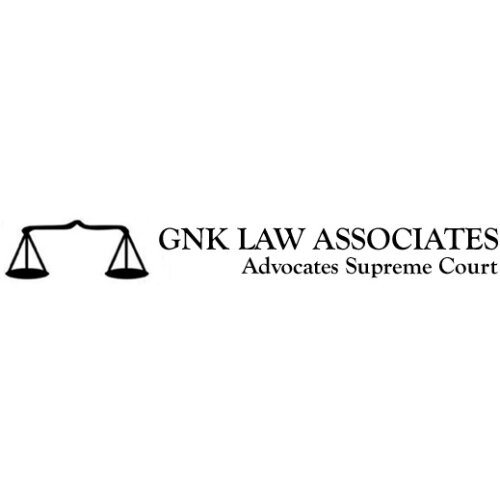Best Employer Lawyers in Delhi
Share your needs with us, get contacted by law firms.
Free. Takes 2 min.
List of the best lawyers in Delhi, India
About Employer Law in Delhi, India
Employer laws in Delhi, India, encapsulate a wide array of regulations and statutes designed to maintain a balanced and fair relationship between employers and workers. These laws are an integral part of the labor law framework in India, focusing on contract enforcement, workplace safety, dispute resolution, employee rights, and employer obligations. Being a hub for businesses and industries, Delhi follows both state-specific and central labor laws, with the goal of harmonizing the workplace environment and ensuring economic growth through fair labor practices.
Why You May Need a Lawyer
There are several scenarios where someone might require legal assistance in the domain of employer law. Common situations include drafting employment contracts, negotiating terms of employment, handling workplace discrimination or harassment cases, resolving wage disputes, managing wrongful termination issues, and understanding compliance with labor laws. Employers might also seek legal counsel to ensure that they meet statutory requirements and to avoid litigation by implementing effective HR policies.
Local Laws Overview
Delhi, being the capital territory, is governed by both central and state labor laws. Key legislations include the Industrial Disputes Act, 1947, the Employment Exchanges (Compulsory Notification of Vacancies) Act, 1959, and the Delhi Shops and Establishments Act, 1954. These laws cover aspects such as conditions of service, rights of workers, dispute resolution mechanisms, employer liabilities, and compliance requirements. Employers must also be mindful of recent labor codes that aim to consolidate the vast number of labor laws.
Frequently Asked Questions
What is the process for filing a complaint against an employer?
The process involves lodging a complaint with the local labor commissioner's office or a labor court, depending on the nature and severity of the grievance.
Are there any minimum wage laws applicable in Delhi?
Yes, the Delhi government periodically revises minimum wage rates. Employers must ensure they comply with the current rates as determined by the state government.
What are the legal provisions for maternity leave in Delhi?
Under the Maternity Benefit (Amendment) Act, 2017, eligible working women are entitled to 26 weeks of paid maternity leave.
How do labor laws protect against workplace discrimination?
Laws such as the Equal Remuneration Act, 1976, and provisions under the Indian Constitution work to prevent discrimination based on gender, caste, religion, etc., in the workplace.
What are the consequences for employers not adhering to labor laws?
Consequences can include fines, penalties, legal action, and damage to reputation; employers might also face sanctions by labor authorities.
Is it mandatory to provide written employment contracts?
While verbal agreements are recognized, written contracts are highly advisable to clearly outline terms, conditions, and avoid disputes.
How can employers legally terminate an employee in Delhi?
Termination must follow due process, aligning with either the terms of the employment contract or statutory provisions under the Industrial Disputes Act.
What rights do temporary workers have in Delhi?
Temporary workers are entitled to certain benefits, albeit limited compared to permanent employees, including wages and safety regulations.
What role does the Employee Provident Fund (EPF) play in employment law?
The EPF facilitates savings for retirement for employees, and contributing to it is mandatory for certain categories of employers.
Are health and safety regulations mandatory for all employers in Delhi?
Yes, employers must ensure workplace safety and adhere to the Occupational Safety, Health, and Working Conditions Code, among other relevant laws.
Additional Resources
Individuals can refer to the Ministry of Labour and Employment’s website for comprehensive legal frameworks and updates. The Delhi Labour Department provides useful information and assistance. Non-governmental organizations like the National Campaign on Dalit Human Rights (NCDHR) can also offer support concerning employer-related issues.
Next Steps
If you need legal assistance regarding employer issues in Delhi, it is advisable to consult a professional labor law attorney. You should gather all relevant documents relating to your employment before consultation to ensure an informed discussion. Browse the Bar Council of Delhi’s directory to find qualified lawyers specializing in employer law. Additionally, reaching out to local labor authorities for guidance and preliminary advice can also be beneficial.
Lawzana helps you find the best lawyers and law firms in Delhi through a curated and pre-screened list of qualified legal professionals. Our platform offers rankings and detailed profiles of attorneys and law firms, allowing you to compare based on practice areas, including Employer, experience, and client feedback.
Each profile includes a description of the firm's areas of practice, client reviews, team members and partners, year of establishment, spoken languages, office locations, contact information, social media presence, and any published articles or resources. Most firms on our platform speak English and are experienced in both local and international legal matters.
Get a quote from top-rated law firms in Delhi, India — quickly, securely, and without unnecessary hassle.
Disclaimer:
The information provided on this page is for general informational purposes only and does not constitute legal advice. While we strive to ensure the accuracy and relevance of the content, legal information may change over time, and interpretations of the law can vary. You should always consult with a qualified legal professional for advice specific to your situation.
We disclaim all liability for actions taken or not taken based on the content of this page. If you believe any information is incorrect or outdated, please contact us, and we will review and update it where appropriate.














